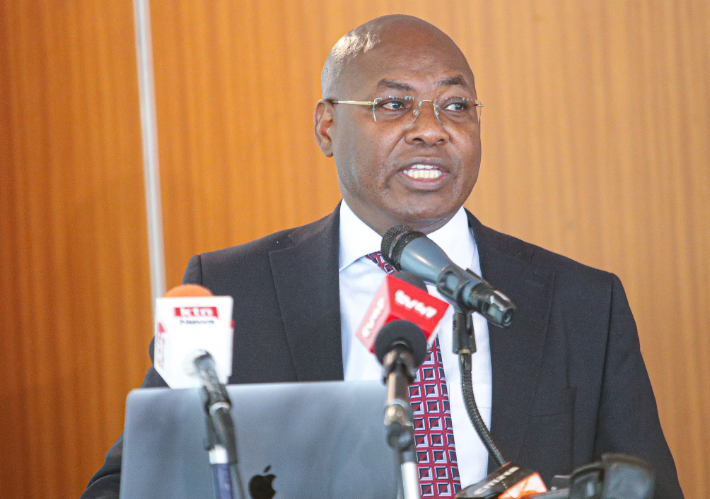The healthcare workforce in Kenya will be equipped with 70,000 mobile tablets and 5,000 laptops ahead of the Social Health Authority (SHA) rollout in October 1, 2024.
According to Principal Secretary for Medical Services Harry Kimtai, the gadgets, meant for the National Health Information Exchange (HIE), will be backed up with reliable internet connectivity and power backup systems country-wide.
HIE is a shared service that will consolidate and harmonize patient records across all levels of care and make data portability a reality.
The HIE will enable the creation of encrypted digital patient records allowing healthcare providers – both public and private across the country to access a patient’s medical history with ease upon authorization and consent from the patient, enabling faster diagnoses, smoother referrals, and more accurate treatments in compliance with the data protection laws.
The government is also introducing local hosted health cloud to securely store and manage patient data in line with all applicable Kenyan data protection laws.
The health workers will also enjoy AI and Machine Learning tools to support proactive health management and clinical decisions.
“The Government of Kenya, through the Ministry of Health, is making a concerted effort to transform the country’s healthcare system. At the core of this transformation is our commitment to Universal Health Coverage (UHC), ensuring that every Kenyan has access to quality healthcare regardless of location or economic status. This is not just a project it is a national mission to save lives, save time, and reduce costs,” Kimtai stated.
The government is also introducing the Hospital Management Information System (HMIS) for all Public Health Facilities.
The HMIS will be deployed in partnership with the County Governments and will digitise the operations of all public health facilities allowing doctors and healthcare professionals to access (under consent management) patient records instantly, make informed clinical decisions, and provide care that is tailored to each patient’s needs.
Health products supply chain management system
Kimtai has also announced that the government is digitizing the health products supply chain which will facilitate visibility of the movement of pharmaceuticals and non-pharmaceutical products across the healthcare system, ensuring that hospitals are stocked with the medicines and supplies they need.
“Under this transformation, we are digitizing KEMSA’s entire supply chain, which will provide real-time visibility of inventory levels across the country. This will drastically reduce stockouts, ensure proper distribution of medical supplies, and prevent unnecessary deaths caused by lack of essential medicines,” Kimtai added.
“Moreover, the introduction of traceability measures will ensure that only genuine medicines reach patients. By using globally recognized standards to track pharmaceuticals, we will prevent counterfeit drugs from infiltrating the supply chain-an issue that has taken lives in the past.”
Health Insurance Platform (HIP)
Also in the pipeline is the Health Insurance Platform (HIP), which will will allow for the authentication of claims in real-time, fraud prevention and automation of all activities of the Social Health Authority.
“This will also allow both public and private sector health providers to integrate to the Social Health Authority. To allow for the envisaged evolution, Kenya will adopt the Global Health Interoperability standards Protocols (HL7 FHIR Fast Health Interoperability resources) and guidelines ensuring seamless data exchange between different healthcare systems and software. This will allow technology providers in the health sector to adopt a common standard that allows interoperability at the National Level,” Kimtai added.
Read: SHIF: How Does Social Health Insurance Fund in Kenya Work?
>>> AI-Powered Heart Failure Screening in Kenya













Leave a comment